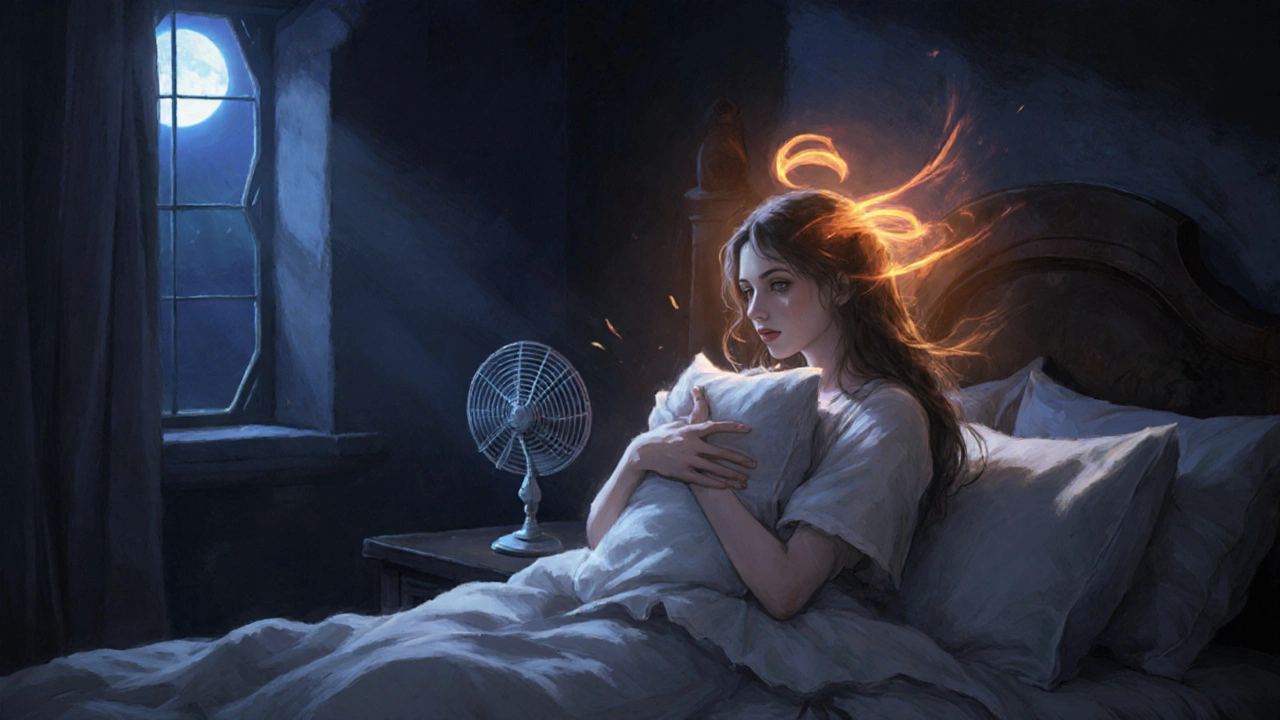Menopause Sleep: Why It Happens and What Actually Works
When menopause sleep, the pattern of disrupted rest caused by hormonal shifts during menopause, often marked by hot flashes, night sweats, and insomnia. Also known as menopausal insomnia, it affects nearly 8 out of 10 women and isn’t just about being tired—it’s about your body’s chemistry changing under your skin. This isn’t normal aging. It’s a biological reset. Estrogen drops. Progesterone follows. Both of these hormones help regulate your body’s thermostat and your sleep cycle. When they fade, your brain loses its ability to keep your temperature steady at night. That’s why you wake up drenched, heart racing, and wide awake—sometimes multiple times a night.
It’s not just hot flashes. Low estrogen also lowers serotonin, which your body needs to make melatonin—the hormone that tells you it’s time to sleep. So even if you don’t feel a single hot flash, your brain might still be stuck in alert mode. Add in stress, anxiety, or aching joints, and you’ve got a perfect storm. And no, drinking more water or turning down the AC won’t fix it. You need to target the root cause: hormone imbalance and its ripple effects on your nervous system.
Some women find relief with low-dose hormone therapy, but that’s not for everyone. Others swear by magnesium supplements, black cohosh, or CBD oil—but the science is mixed. What actually works? Consistent sleep hygiene, like going to bed and waking up at the same time every day, even on weekends. Keeping your bedroom cool, dark, and screen-free. Avoiding caffeine after noon. And yes, some women benefit from non-hormonal prescriptions like low-dose SSRIs, which help with both mood and night sweats. It’s not one-size-fits-all. But it’s not hopeless either.
Below, you’ll find real, practical comparisons of treatments that actually help—whether it’s how certain medications affect night sweats, what supplements show real results, or how lifestyle tweaks stack up against pills. No fluff. Just what works for women who’ve been there.
Menopause and Sleep: Practical Tips for Better Rest
Discover why menopause disrupts sleep and learn practical, evidence‑based tips-from cooling your bedroom to hormone therapy-to finally enjoy uninterrupted rest.






